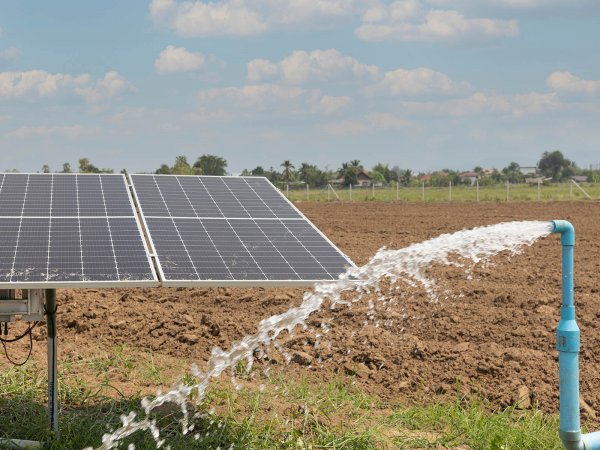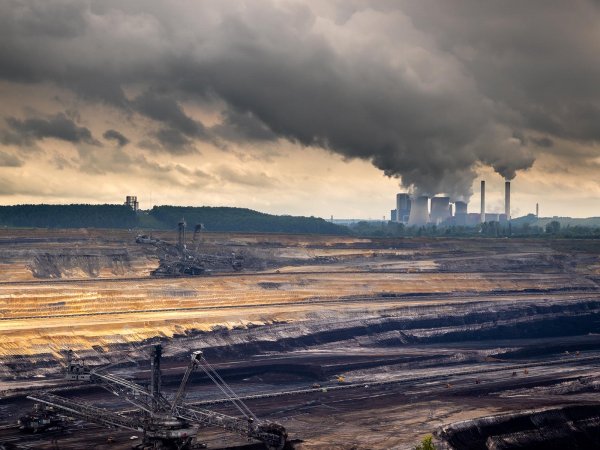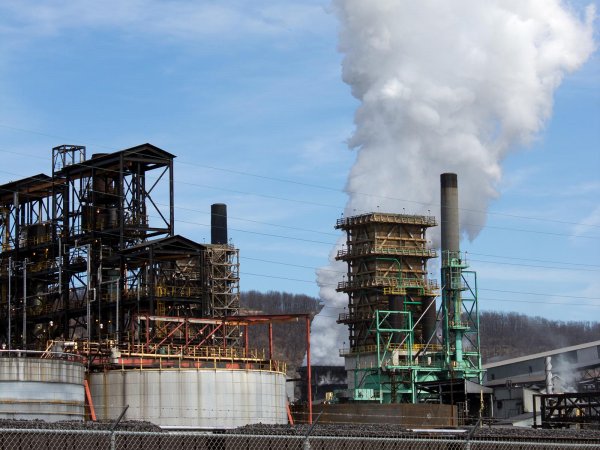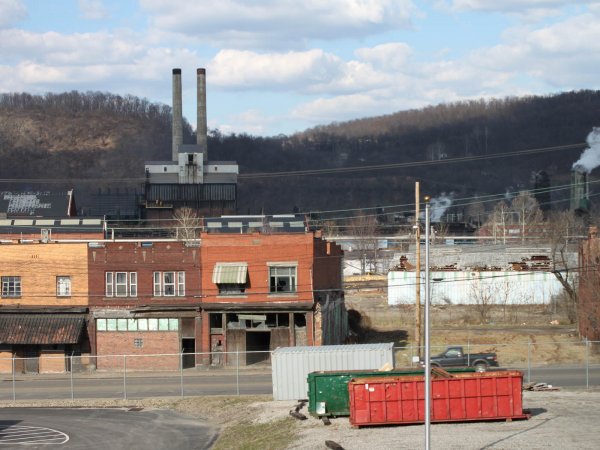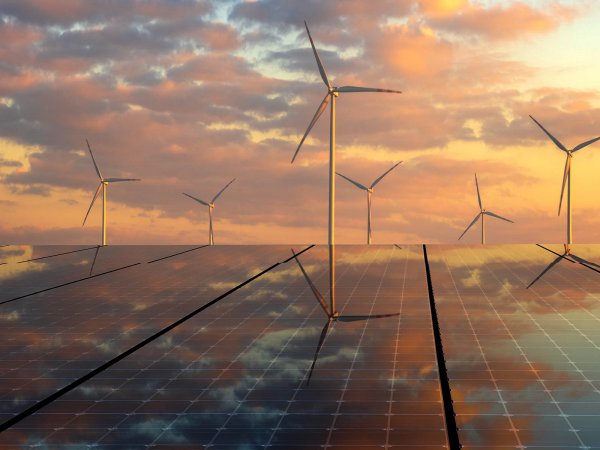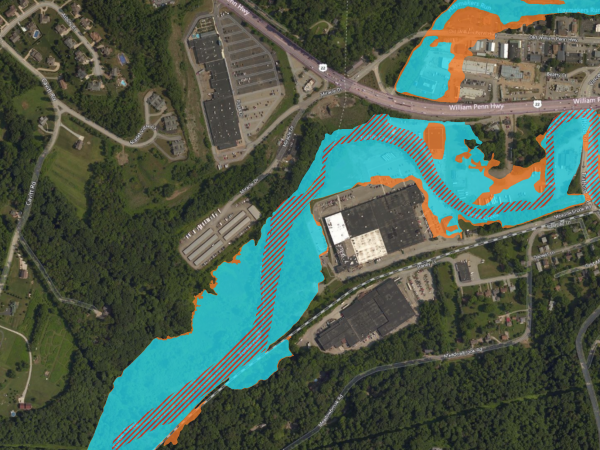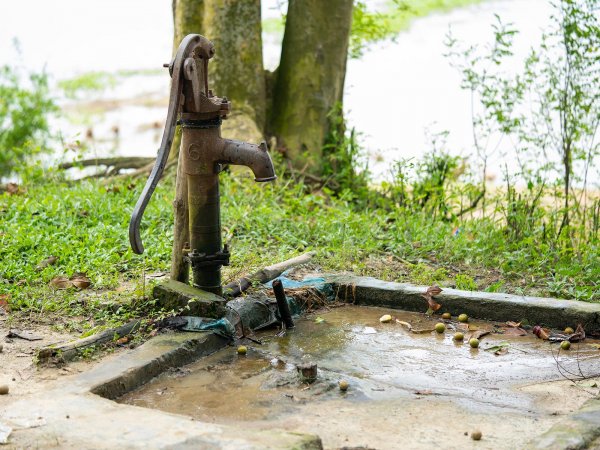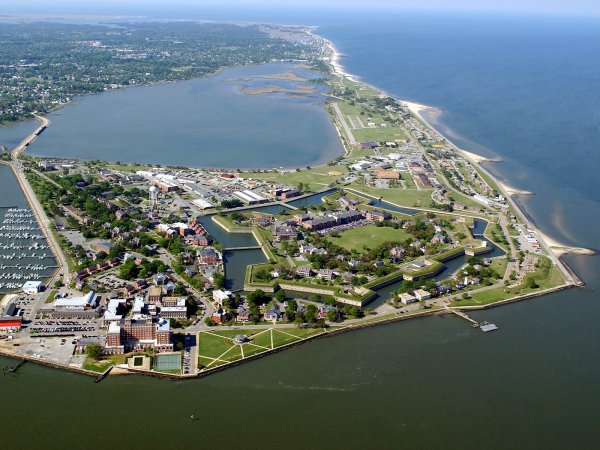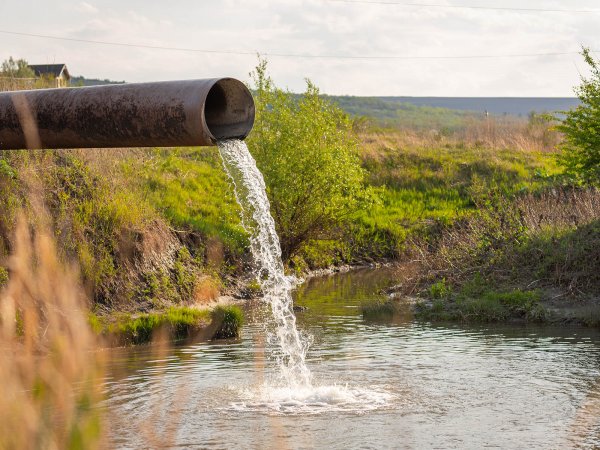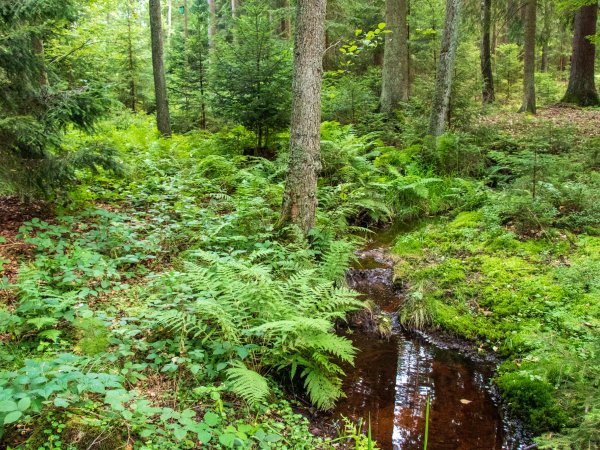Funded Projects
The following 22 projects were awarded seed grant funding in the 2021 IEE Seed Grant Program.
AESEDA-HBCU Air Quality for Environmental Justice Network
A team of researchers is installing air quality sensors on campuses to study the link between air quality and public health, especially in communities of color.
Analyzing the Adoption of Solar Irrigation Pumps in India within the Food-Energy-Water Nexus: Implications for Carbon, Groundwater Depletion, and Agricultural Productivity
A team of researchers is studying the potential impacts of solar irrigation pumps on climate change, groundwater depletion, and the food system in India, with the goal of informing policy decisions.
Assessing Distributional Effects of Coal-Fired Power Plant Operations on Pollution and Health
Researchers are studying the environmental, health, and economic implications of coal-fired power plant reductions in the United States, with the goal of developing sustainable and equitable energy policy.
Coastal Carbon Dynamics in a Riparian Buffer Ecosystem, Lake Erie Basin
A team of researchers is studying the factors that control the accumulation of carbon in freshwater wetlands in the Great Lakes region, with the goal of improving climate models.
Community Engagement and Interdisciplinary Collaboration to Direct Air Quality Research at Industrial Sites Near Pittsburgh
A team of researchers is working to address air quality concerns in urban areas by engaging community stakeholders and conducting research to understand the potential health impacts of air pollution from industrial sites.
Development of Innovative Materials and Technology for Cellular Agriculture
This interdisciplinary research team is developing new technologies and materials to produce cultured meat that is safe, sustainable, and scalable.
Effects of Biofilms on the Transport of Microplastics
Two researchers at Penn State are studying how biofilms on microplastics affect their movement in environmental flows, with the goal of understanding microplastic pollution and developing solutions to mitigate it.
Energy Retrofit Policy and Programs in Low-Income Housing Markets: Implications for Energy Equity in Cleveland, Ohio
Researchers are studying how energy retrofitting finance and policy interact with racialized housing segregation and affordability in Cleveland, Ohio, with the goal of informing energy transition programs and policies in other cities.
Engaging Underserved Communities in Environmental Assessment for Healthy Living
Researchers are studying the role of the built and natural environments in influencing physical activity, healthy eating, and air quality to develop methods of environmental assessment and equitable neighborhood development.
Expanding the Policy Foundation for Electricity Prosumers: Lessons From New York and California
Researchers are studying the obstacles to scaling up distributed energy resources (DERs) and the inequitable distribution of their benefits, to identify and analyze barriers that remain to be overcome.
Farafatse: Decline and Livelihood Sustainability in SW Madagascar
Researchers are working with local communities in one of the world’s most biodiverse and critically endangered coastal regions to document the distribution, abundance, and decline of farafatse, a key economic tree species.
Finding Common Space: Reconciling One Health Socio-Environmental Factors in Pennsylvania
A transdisciplinary team is exploring how One Health, an approach that recognizes the interconnectedness among human health, ecosystem health, and animal health, may be able to tackle complex health problems facing Pennsylvania.
Flooding, Hurricane Harvey, and Environmental Justice
A team of researchers seeks to better understand the social effects associated with flooding, such as whether racial and ethnic minorities, children, and those with low income suffer the most.
Lignin Derived Graphite for Renewable Energy Storage and Transportation Electrification
A research team is developing a new method to produce high-quality graphite from biopolymers, which could be used to make more efficient batteries and energy storage devices.
Methane Emissions Mitigation and Carbon Capture With Biofiltration
A team of researchers is investigating how biofiltration could reduce greenhouse gas emissions by mitigating methane emissions and capturing the generated carbon dioxide.
Overcoming Barriers to Local Governance of Utility-Scale Solar Energy Systems in Pennsylvania and Regionally
A research team is developing resources and guidelines for local governments to develop solar ordinances that are effective and trusted by the local community.
Simultaneously Harvesting Cold Universe and Sunlight as Renewable Energy
A team of researchers is developing a dual-energy harvester that can harvest sunlight and the cold universe to simultaneously produce cooling and electricity.
Towards Sustainable and Equitable Household Water Security: Lessons from Bangladesh
A research team is studying how environmental conditions in Bangladesh affect household water security and whether information about environmental health risks can help alleviate water insecurity.
Urban Microclimate, Outdoor Thermal Comfort, and Socio-Economic Mapping: A Case Study of Two High-Density Cities
Researchers are developing a new way to map urban thermal comfort in cities to help inform architects, urban planners, and policymakers about the relationship between outdoor urban climate and socioeconomic factors.
Visualizing Cultural Landscapes Under Sea-Level Threat to Improve Equity in Climate Engagement
A research team is developing realistic visualizations of sea-level rise to help people understand the impact on culturally significant sites and landscapes, especially for racially and culturally diverse audiences.
Water Quality Assessment of an Urban Watershed in Lancaster, Pa: Implications for Environmental Justice
A research team is studying the pollution in urban waterways in Lancaster, Pennsylvania, with the goal of developing a tool that can provide real-time information on urban water health.
Wetland Hydrology and Plant Community Composition – A Reassessment of Site Conditions a Decade Later
A Penn State researcher looks to reinstall instruments on wetland sites where he collected data more than a decade ago to assess hydrologic changes that may have occurred due to climate change.
RFP
Program Overview
Penn State’s Institutes of Energy and the Environment (IEE) Seed Grant Program is intended to foster basic and applied research on strategic interdisciplinary topics that leverage faculty expertise across the university. The Seed Grant Program strives to:
- Develop new interdisciplinary research teams and position them for substantial external funding success;
- Pursue novel research in IEE’s theme areas, especially high-risk proof of concept projects; and
- Promote research development and mentorship between junior and senior faculty.
Important Dates
January 6, 2021
February 12, 2021
5 p.m. — Proposals to be submitted on infoready: https://psu.infoready4.com/#competitionDetail/1830589
March 19, 2021
5 p.m. — Funding decisions announced
April 16, 2021
Grant funds made available and must be expended by June 30, 2022.
Synopsis
IEE is seeking proposals that address at least one of our core themes, which have been updated to reflect IEE’s new strategic plan. In addition, we are seeking proposals that address questions of equity and environmental justice embedded in the core themes below.
Climate and Ecosystem Change
Managing the risks of anthropogenic climate change poses significant challenges now and into the future. Warmer and more extreme weather events will increase the risk of natural disturbances, increase the burden of pests and pathogens, threaten public health, and expose vulnerabilities in critical infrastructural systems. The burden of climate resilience and adaptation will fall unequally and inequitably, burdening people of color and rural and poor communities disproportionately. IEE’s commitment to supporting interdisciplinary research in energy and the environment means we have a unique opportunity to identify solutions to these impacts across natural, social, and built systems. Building on Penn State’s distinctive foundation in climate change research, we seek new and innovative advances in the following areas:
- Climate science: including but not limited to modeling, ecological forecasting, data visualization, ecosystem/human impacts.
- Climate risk: including but not limited to natural hazards, adaptation, decision-making, and resilience.
- Climate solutions: including but not limited to justice, health, policy, and climate-smart technology, infrastructure, and management.
Please note that additional funding opportunities in ecosystem change are expected to be supported this year through a separate seed grant opportunity, partially supported by the Ecology Institute, the Sustainability Institute, and IEE. If you are interested in this opportunity, please plan to attend an online symposium during Spring 2021 on “Mainstreaming Biodiversity in a Decade of Action” and apply to that targeted seed grant call due April 23, 2021. Because the biodiversity seed grants specifically target transdisciplinary research and stakeholder engagement and will be due after the IEE seed grant awards are announced, the same team can apply to both programs this year if their IEE proposal is not accepted, or even in the case of an IEE award if deliverables for the two proposals are clearly differentiated.
Integrated Energy Systems
As society continues to increase its energy consumption needs, improvements in energy sources, efficiency, infrastructure, policy, and management will become increasingly important to the process of stewarding natural resources. We are looking for ways to develop, advance, and disseminate innovative methods for all aspects of energy: production, infrastructure, utilization, carbon sequestration, energy storage and management, related environmental questions, energy efficiency of buildings, transportation, businesses, and other modes of consumption. Research to develop policy foundations supporting next-generation energy systems is an integral part of this theme and will support the newly formed Penn State Center for Energy Law and Policy. At a time of rapid energy system transformation, these components will form the basis of the next generation of integrated energy systems to deliver clean, safe, abundant, affordable, and reliable energy as a foundation for economic and human development. In addition to this broad theme, we are looking for potential projects that address the following:
- Negative carbon emissions (including the technical, biophysical and socio-political opportunities and challenges associated with natural and technical solutions that generate negative emissions)
- Resilience of energy systems in response to stressors
- Renewable energy technologies (with funding provided by the Energy 2100 strategic initiative)
- Legal and regulatory frameworks that incorporate governance or equity issues, or that can drive down non-hardware costs of low-carbon energy technologies
- Science-based legal and regulatory frameworks for emerging energy systems (e.g. microgrids, hydrogen, coupled systems, advanced nuclear, wireless electricity, etc.)
- Energy consumption behaviors and implications for policy design
Health and the Environment
The National Academy of Sciences lists climate change, emerging infections, and pollutant impacts as three of the six most important environmental challenges of this century. Dynamics of disease, environmental change, and gene-environment interactions have been affecting human, animal, and plant health for decades, but we are only now beginning to address these interactions in ways that can disrupt infectious disease vectors, enable precautionary design of chemicals and materials, and develop medical treatments to minimize negative impacts. Researchers are also identifying an increasing number of beneficial human/ environment interactions, including the microbiomes in our digestive systems and on our skin. Expanding and leveraging this knowledge can enhance health in a myriad of different ways. We are looking for projects that can examine these interactions, including the technical, socio-political, and behavioral dynamics such as:
- Climate change and health, including both health impacts and solutions (see above)
- Energy and health policy (including health drivers of energy choices as well as energy-related drivers of health outcomes)
- Water and health
- Health and the built environment
- Health, the environment, and environmental equity/justice considerations
Urban Systems
Anthropogenic and environmental changes are profoundly impacting the health and sustainability of humans and the environment. Across the globe, the trend toward urbanization is driving resource needs and impacts with water, food, and energy while disparately impacting low income/minority populations. This theme is meant to catalyze research partnerships related to urban systems, including the urban/rural interface, buildings, transportation, and more. As a new theme, we welcome ideas or ways to catalyze inter-disciplinary work in this space and recommend looking at the National Science Foundation’s information on Communities in the 21st Century for background. Potential ideas include the following:
- Health and human performance impacts of indoor and outdoor urban environments
- Finance and policy for building energy efficiency
- Innovative materials and technologies for high performance buildings (see also the seed grant call for Living Multifunctional Materials Collaborative Research, due January 20, 2021; in this case similar proposals will not be funded by both seed grant programs)
Water and Biogeochemical Cycles
Water is essential to the health of people and communities, ecosystems, regional and national economies, and the security of nations, supporting personal health, food production, manufacturing, energy generation, recreation, and a spectrum of other socially-valued ecosystem services. The challenges of droughts, floods, and degraded water quality – which serve to underscore our dependence on a balanced quantity and adequate quality of water – are expanding with the demands of a growing global population. We seek inter-disciplinary, innovative research that advances understanding and demonstrates solutions under the four areas of emphasis in the Water Consortium proposal:
- Protecting public health and the environment (water related)
- Advancing resilient communities on a dynamic earth
- Driving innovation and technology
- Guiding social action, policy, and corporate transformation
Details on each of these water-related areas of emphasis are available from the Water Consortium proposal. Potential projects could include, but are not limited to, topics such as the water-energy-food nexus; climate dynamics across the hydrosphere; sustainability, resilience of built environments, and integrated nature-based solutions; ecosystem protection and restoration; stormwater and wastewater management; emerging contaminants; water security and health; social justice and equity in water services; and advanced technologies, such as materials, instrumentation, monitoring, and data analytics.
Program Guidelines
Eligibility
All Penn State faculty members (tenured, tenure track, and fixed term) who hold an appointment of half-time or more at any Penn State campus are eligible to submit a seed grant proposal as a Principal Investigator (PI). Researchers, students and staff from Penn State, other research institutions, Pennsylvania state agencies, federal agencies, and private industry may be included as collaborators in seed grant proposals, but subcontracts to entities outside of Penn State are not allowed. Please note that while most proposals are expected to include multiple investigators, there can only be one responsible PI for each application. In addition, investigators may only serve as PI on a single proposal.
New teams of investigators will be given preference over those who may have previously received an IEE seed grant. PIs that were awarded an IEE Seed Grant in 2020 are ineligible to serve as PI for this call but may participate as a co-PI or member of the project team on a submission.
Funding Availability
To encourage establishment of new collaborations and enhancement of networks, larger grants will require innovative partnerships of investigators from multiple colleges and/or campus locations. Funds up to $30,000 are available for multi-college/school (across University Park) and multi-campus (between campuses) collaborative grants; up to $15,000 for two or more faculty with different disciplinary expertise housed within the same college (University Park) or at a single Commonwealth Campus; and up to $5,000 for a single investigator project.
Funds may be used to support research development and coordination expenses such as:
- Graduate student stipend and tuition support
- Undergraduate student wages
- Instrumentation fees and sample analysis to collect preliminary data
- Equipment, supplies, and participant payments
- Travel associated with conducting/reporting seed grant research (Penn State participants only)
- Hosting a research planning meeting for an interdisciplinary team
- Planning and hosting conferences and symposia
- Funding for data conversion technology and wages to support date conversion
The following funding restrictions apply:
- Single college/campus funding, even with faculty from several departments, is capped at $15,000
- Regular appointment, summer, or supplemental salary support for faculty is disallowed
- Postdoc salary is disallowed
- Travel support to attend conferences is disallowed
Submission Instructions
All proposals must be submitted electronically via upload from the link at https://psu.infoready4.com/#competitionDetail/1830589 no later than 5:00 p.m. on Friday, February 12, 2021. Each proposal is limited to a 2-page project description and additional pages for an appendix.
Note: There is no preproposal stage, so the two-page project description needs to clearly address all the review criteria below.
Proposal format:
- Size 12 font
- Left aligned with 1-inch margins
- PDF document
The two-page project description must include:
- Title of project
- PI and co-PI's names including college, department and/or campus
- Project abstract (understandable by an interdisciplinary audience, see criteria 1 and 5 below)
- Short description of how this project will leverage seed funding (see criterion 2 below)
- Nature of collaboration (new/existing; mentorship opportunities, see criterion 3 below)
- Total funding to be requested, including brief budget justification
The appendix shall include:
- A list of all collaborators, their colleges and/or departments
- The name and email of the department financial contact to facilitate transfer of funds if awarded
- 1-page or 2-page resumes for the PI and all co-PIs
Review Criteria
Proposal reviews are based upon the following criteria:
- Intellectual merit of the proposal, including relevance to strategic priorities and contribution to global leadership in a prioritized theme; equity and environmental justice; creativity and innovation; significance of goals and results; soundness of research plan; and likelihood of successful project completion. Please note that these proposals are reviewed by a cross section of researchers with different backgrounds; your ability to communicate your ideas to a broader audience is important for success with interdisciplinary project review panels.
- A credible and clearly articulated strategy for leveraging this seed grant investment into exceptional scholarship and/or significant external funding. Potential for additional/continued activity beyond the seed grant phase may include plans for continued activity such as applications for external support from federal, state or local government agencies, industry, private foundations; plans for continued research activities involving in-kind support, teaching activities, on-going scholarly work; plans for public engagement and outreach; and expanded implementation by external stakeholders. Providing specific examples, including specifics of external funding opportunities, or contact with program officers has been helpful in establishing the credibility of these strategies to prior seed grant reviewers.
- Realistic potential for developing new and productive collaborations between PIs, with special consideration given to mentorship and collaborations between junior and senior faculty. Possibilities for additional activities and projects which draw upon the seed grant partnership should be specified.
- Appropriateness of the budget request for supporting the proposed research.
- Extra consideration will also be given to projects that have a compelling plan to leverage research results to advance knowledge and generate positive impact. For more on this criterion, see: http://www.iee.psu.edu/content/message-director. In addition, extra consideration will be given to proposals that address equity and environmental justice considerations.
Proposals will be reviewed, scored against these criteria, and categorized as “Award” or “Do Not Award.”
Please direct any questions regarding the proposal process to iee@psu.edu.
Review Committee
Reviewer Name, Theme Reviewed
- Charles Anderson, Integrated Energy Systems
- Rebecca Bascom, Health and the Environment
- Seth Blumsack, Integrated Energy Systems
- Roman Dibiase, Urban Systems
- Patrick Drew, Health and the Environment
- Jonathan Duncan, Water and Biogeochemical Cycles
- Lara Fowler, All Themes
- Noel Giebink, Integrated Energy Systems
- Anil Kumar Chaudhary, Health and the Environment
- Jesse Lasky, Climate and Ecosystem Change
- Shimin Liu, Water and Biogeochemical Cycles
- Bruce Logan, Integrated Energy Systems
- Ashkan Negahban, Integrated Energy Systems
- Esther Obonyo, Climate and Ecosystem Change
- Gregory Pavlak, Urban Systems
- Matthew Rau, Integrated Energy Systems
- Jay Regan, Water and Biogeochemical Cycles
- Tom Richard, Health and the Environment
- Aly Said, Urban Systems
- Erica Smithwick, Climate and Ecosystem Change
- Janet Swim, Climate and Ecosystem Change
- Brian Thiede, Urban Systems
- Andrew Warner, Water and Biogeochemical Cycles
- Xueyi Zhang, Climate and Ecosystem Change
- Tieyuan Zhu, Water and Biogeochemical Cycles


